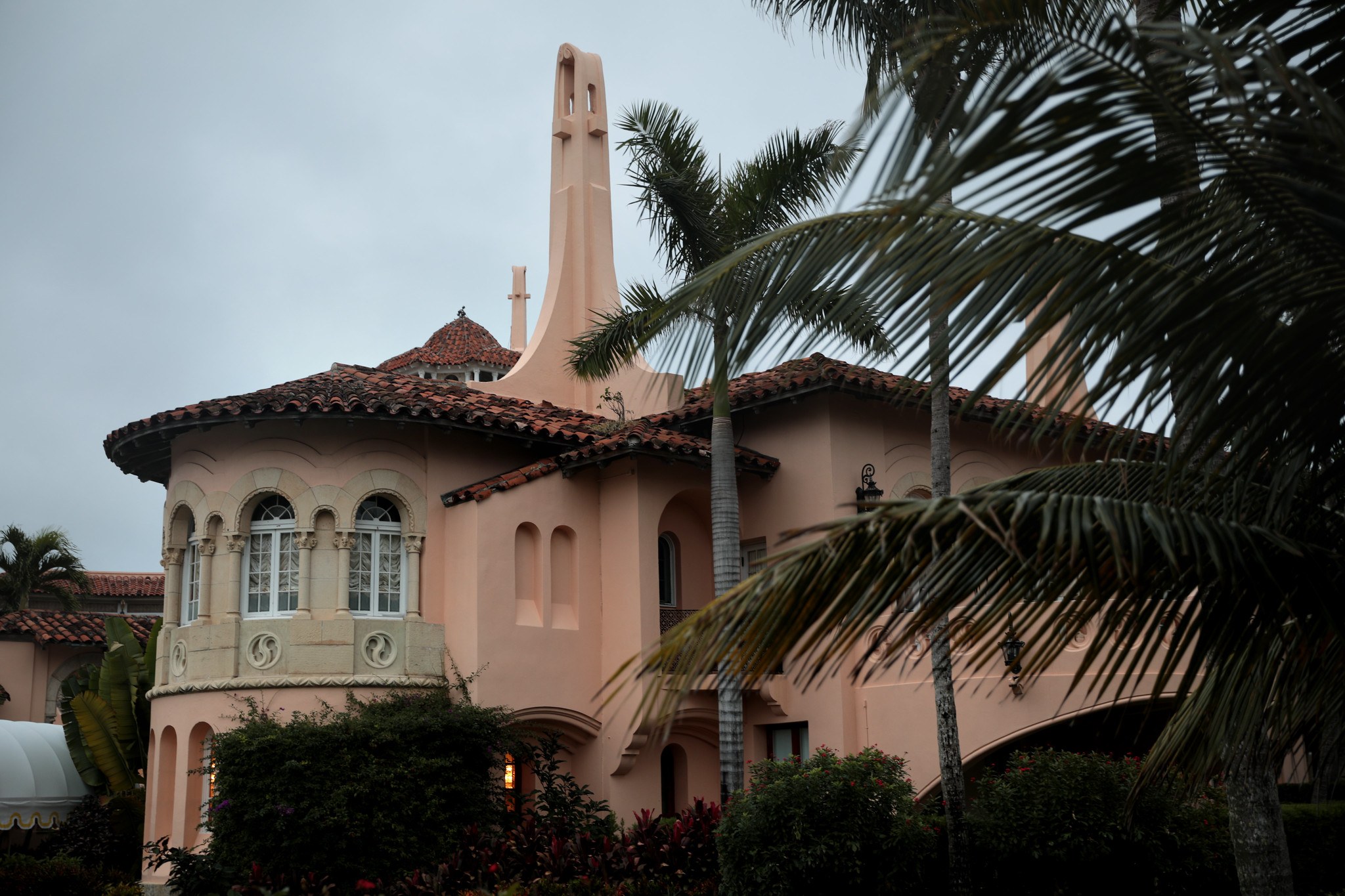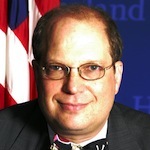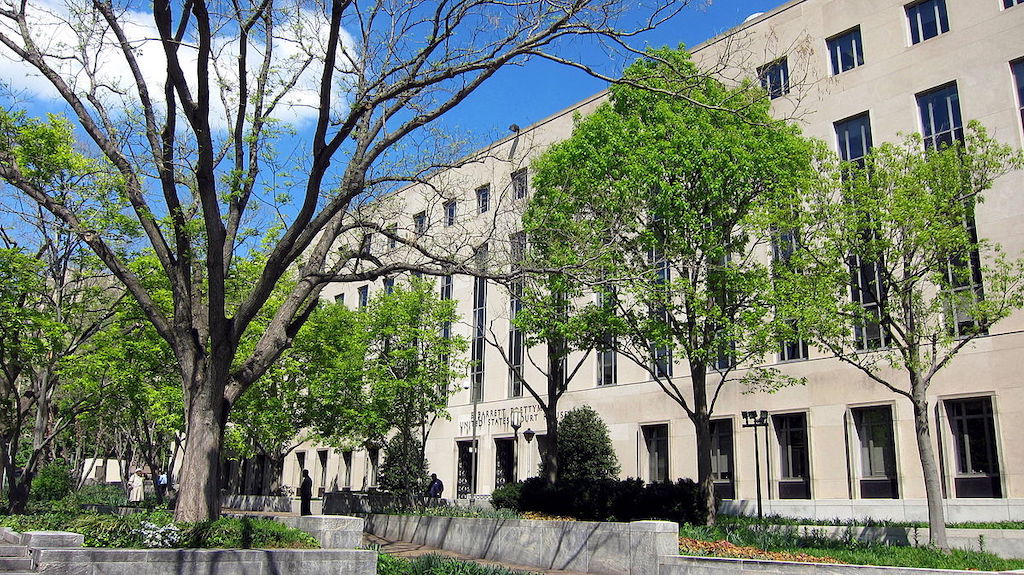M. Evan Corcoran’s Attorney-Client Privilege in Florida

Published by The Lawfare Institute
in Cooperation With

On June 8, a grand jury in the Southern District of Florida indicted former President Donald Trump in connection with the investigation into the alleged improper removal of classified documents from the White House to Mar-a-Lago. Trump was charged with conspiracy to obstruct justice, willful retention of national defense information, withholding a document or record, corruptly concealing a document or record, concealing a document in a federal investigation, scheme to conceal, and false statements and representations.
For the charge of conspiracy to obstruct justice, the grand jury relied on records and testimony presented by Trump’s attorney, M. Evan Corcoran. The indictment alleges Trump violated two statutory provisions under federal law. Under 18 U.S.C. § 1512(b)(2)(A), an individual may be prosecuted for either “corruptly persuad[ing]” or engaging in “misleading conduct” toward another person with the intent to induce someone to withhold a record, document, or other object from an official proceeding. Under 18 U.S.C. § 1512(c)(1), an individual may be prosecuted for corruptly concealing a record, document, or other object from an official proceeding.
Corcoran provided the grand jury with powerful evidence that Trump engaged in criminal conduct. The indictment alleges multiple instances of behavior that appear to be clear violations of these statutory provisions. For example, Corcoran testified about several concerning instances when Trump made statements such as, “Well look isn’t it better if there are no documents?” and “Wouldn’t it be better if we just told them we don’t have anything here?” Corcoran also explained to the grand jury how Trump praised another attorney for deleting Hillary Clinton’s emails so Clinton would not get in trouble. At another point, Corcoran testified that Trump made a gesture that Corcoran interpreted to mean he should pluck out any incriminating documents.
Corcoran delivered this testimony before a grand jury assembled in Washington, D.C. (The Department of Justice later restarted the proceedings in the Southern District of Florida.) While the proceedings were still in D.C., Corcoran allegedly resisted providing information to the grand jury under the theory that his communications with Trump were protected by the attorney-client privilege. However, Judge Beryl A. Howell, a federal district judge in Washington, D.C., ordered Corcoran to testify and produce records under the crime-fraud exception to the attorney-client privilege. The D.C. Circuit upheld the order.
Judge Howell’s Order Is Not Binding
While the information Corcoran provided is powerful evidence, the prosecution may have a difficult time getting this information admitted at trial because the trial judge may ultimately side with the defense and conclude that the attorney-client privilege protects these conversations. And that will be problematic for the prosecution—unless other evidence of the exchanges can be produced, the prosecution’s charge of conspiracy to obstruct justice appears to hinge on Corcoran’s records and testimony.
Howell’s order is not binding on Judge Aileen Cannon—the judge assigned to the case. Cannon is free, under the law, to reassess the question and issue her own ruling excluding Corcoran’s testimony.
The principal reason is that Trump, as a criminal defendant, did not have a chance to litigate the issue when it was presented to the grand jury. Thus Howell’s decision does not have a preclusive effect—what lawyers call “issue preclusion”—on Trump’s ability to raise the issue anew. The requirements for issue preclusion to apply—which prohibits the relitigation of claims and issues—have not been satisfied.
For an order to have a preclusive effect, the issue must be identical to the one involved in a prior proceeding, it must have been actually litigated (that is, contested and resolved) in the prior proceeding, the issue’s determination must have been a critical issue of fact or law that has been litigated and decided in the prior suit, and the party against whom the earlier decision is asserted must have had the opportunity to fully litigate the issue in the prior proceeding. Issue preclusion also requires finality in that the prior adjudication is sufficiently firm to be “accorded conclusive effect.”
Howell’s decision likely does not have a preclusive effect on Cannon because the order was issued at the grand jury stage of the same case. In other words, Trump had no opportunity to contest the decision—a requirement that must be satisfied before an order has a preclusive effect. While Howell’s ruling may provide persuasive support for having Corcoran’s records admitted at trial, Cannon is free to re-scrutinize this issue and determine whether the crime-fraud exception to the attorney-client privilege should apply.
The Merits of the Crime-Fraud Exception Question
How should Cannon resolve the matter? Eleventh Circuit precedent suggests that she has the discretion to reach a decision contrary to that of Howell.
The attorney-client privilege protects information shared between an attorney and a client when there is an actual attorney-client relationship (that is, an agreement—typically in writing—between the attorney and the client regarding representation for a specific matter). The purpose of this privilege is to encourage truthfulness between clients and their lawyers and to protect against self-incrimination. However, this privilege does not protect communications made for the purposes of committing a crime. Thus, under the crime-fraud exception, the prosecutor may argue that Corcoran’s records should be admitted at trial under the theory that Corcoran’s services were used by Trump to commit a crime.
Federal courts within the Eleventh Circuit’s jurisdiction apply a two-step test to determine if the crime-fraud exception applies to privileged communication, as explained in In re Grand Jury Subpoena. First, the government must prove a prima facie case, which can be satisfied in one of three ways. (Prima facie means “at first sight” and more or less means a legal standard that the claim is valid on its face, without having been tested in an adversarial proceeding.) The prosecutor may show that the client was engaged in criminal or fraudulent behavior when he sought the advice of the attorney, the client was planning to engage in such conduct when he sought the advice of the attorney, or the client engaged in such conduct after receiving the attorney’s advice. This first step does not require the government to prove the existence of a crime beyond a reasonable doubt but, rather, requires showing “some foundation in fact.” Mere allegations of crime are not sufficient. However, the prosecutor may satisfy its burden by showing evidence that would establish the elements of a crime if believed by a jury (see, for example, Cox v. Adm’r U.S. Steel & Carnegie).
Second, the government must show that the attorney’s assistance was obtained in furtherance of the crime or fraud or was closely related to it. In other words, the issue becomes whether the attorney’s communication with the client is sufficiently related to the crime. Historically, the Eleventh Circuit does not require a restrictive degree of relatedness. The inquiry focuses on whether the purpose of the communication was to further a crime or fraud (an example is In re Grand Jury Investigation from 1987).
There, the Eleventh Circuit has held testimony revealing the content of conversation between an attorney and a client is not admissible under the crime-fraud exception where there is no evidence that the specific conversation furthered or was closely related to an effort to commit a crime. In essence, the plaintiffs failed to show a “factual basis” that would adequately support a good-faith belief that the conversation would reveal evidence of a crime.
While the extent of evidence the prosecutors have in Trump’s case is not currently publicly known, the indictment describes potential evidence that may provide a factual basis to show Corcoran’s testimony and records would reveal evidence of a crime. For example, the indictment states that Trump had his assistant move boxes around before his attorney could review their contents. This behavior could indicate that Trump was attempting to obstruct justice.
In the 1987 tax fraud case, the Eleventh Circuit held that the first prong of the crime-fraud exception was satisfied by a summary of evidence that indicated the defendant misled the IRS about his income. The summary recounted that the defendant possessed large amounts of cash and purchased assets that were grossly disproportionate to the income he reported. The court held that the summary was enough to establish the prima facie case that the defendant had made false statements.
When analyzing the facts under the second prong, the court expressed less confidence in whether the attorney’s advice was obtained in furtherance of the fraud because the record did not identify the specific matters about which the attorney counseled the client. Despite this, the court noted that relatedness should not be interpreted restrictively and that there was no evidence of the attorney advising the client on matters unrelated to income generally. Thus, it held that any advice the attorney gave on generating or disposing of income was sufficiently connected to the fraud to satisfy the second prong.
Applying these standards, it seems that Judge Cannon is free to determine that Corcoran’s testimony may be admitted at trial because Corcoran represented Trump during the FBI’s investigation into Trump’s handling of classified documents. However, Trump will almost certainly argue that Corcoran provided advice on different matters unrelated to the FBI’s investigation, and he may also argue that the evidence was ancillary to and not in furtherance of the crime. Though our view is that the balance of the evidence satisfies the crime-fraud test (and thus that Judge Howell was right), that is by no means a forgone result.
***
Whether the prosecutor will be able to have Corcoran’s evidence admitted at trial will depend significantly on Judge Cannon’s view. Ultimately, Cannon has the leeway to determine whether the evidence satisfies the crime-fraud exception.



